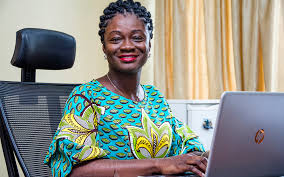Head of the Economics Division at the Institute of Statistical, Social and Economic Research (ISSER), UG wants details of NBSSI loan beneficiaries published.
Professor Peter Quaye said citizens have the right to know what public funds are used for, therefore, government must make public such details.
"Who are we giving them to? How are they investing them? I think we need to publicise these as much as possible," he said on the Super Morning Show.
His comment comes as part of discussions on the country's debt stock and its impact on the economy.
During the discourse, Associate Professor and Dean of International Programmes Office at the University of Ghana who was also on the show highlighted some negative effects the country's Gh¢ 273.8 billion debt stock is likely to have on the economy.
Prof. Eric Osei-Assibey said Ghana is likely to face a myriad of economic challenges including high inflation rates, increased fiscal deficits among others, if monies borrowed are not properly utilised.
The Professor further stated that a country's repayment ability of every loan largely depends on how and what the loans were invested in, thus, Ghana must take keen interest in how it utilises monies contracted as loans.
Adding to this, Prof. Quartey noted that government must also be concerned about how public funds loaned to citizens are used.
"These are public funds. If you borrow from a private sector that confidentiality is there but if you're taking tax payers money, I believe it is appropriate that we publish some of these things," he added.
Government through the National Board for Small Scale Industries (NBSSI) launched a Covid-19 Resilience and Recovery Program for MSMEs dubbed "Nkosuo".
The program was designed to support and accelerate the growth of businesses that fell as a result of the Covid-19 pandemic.
It is a Gh₵ 90 million program aimed at supporting MSMEs, as well as start-ups in sectors such as agriculture and agro-businesses, water and sanitation, healthcare and pharmaceuticals, trade and commerce, the creative arts, among others.
It has a one year moratorium and a two-year repayment period.
Latest Stories
-
Van Vicker applauds Mahama for cedi appreciation against dollar
19 minutes -
Fast-track structural transformation to address socio-economic challenges – AfDB
35 minutes -
CIZA’s ‘Isaka’ dominates digital charts
59 minutes -
TV host removed from NHIA board after outrage over questionable medical credentials
1 hour -
Suspended CJ’s injunction application unanimously dismissed by Supreme Court
1 hour -
18% of Ghanaians paid bribes for public service in 2024 – GSS report
2 hours -
Ruling on Ofori-Atta’s motion against OSP’s ‘Wanted’ declaration adjourned to June 18
2 hours -
AfDB projects Ghana’s economy to slow to 4.5% in 2025
2 hours -
Prime suspect in UEW lecturer’s killing remanded
2 hours -
The Invasion Ghana 2025 – 5th Anniversary: A divine movement
2 hours -
Abdul Mumin nominated for La Liga Goal of the Season award
2 hours -
Star chefs Marvin and Clifford honored at school after stellar win in Indomie challenge
2 hours -
Mahama outlines bold initiatives, says 24-hour economy policy rolls out in July
2 hours -
Feyenoord, Strasbourg eyeing move for Ghana midfielder Lawrence Agyekum
2 hours -
Supreme Court unanimously strikes out suspended CJ’s supplementary affidavit
3 hours

